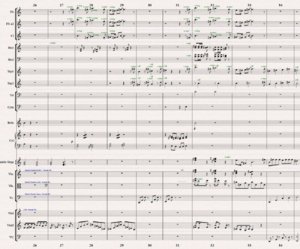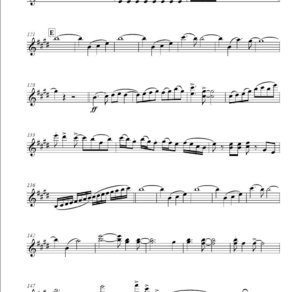dcoscina
Senior Member
I’m hoping Dorico continues to expand and eventually can replace my DAWs with the same quality finished product without having to spend hours on production. Notion initially had that idea back in 2005 but when Kack Jarrett sold it to Presonus, I think it went off the rails and became more of an adjunct to Studio One. Jarrett wanted to make a program that was not a DAW. It’s still a good composing vehicle but lacks the ability to produce finished score quality that an orchestra can play from.


 (American restaurant)
(American restaurant)


